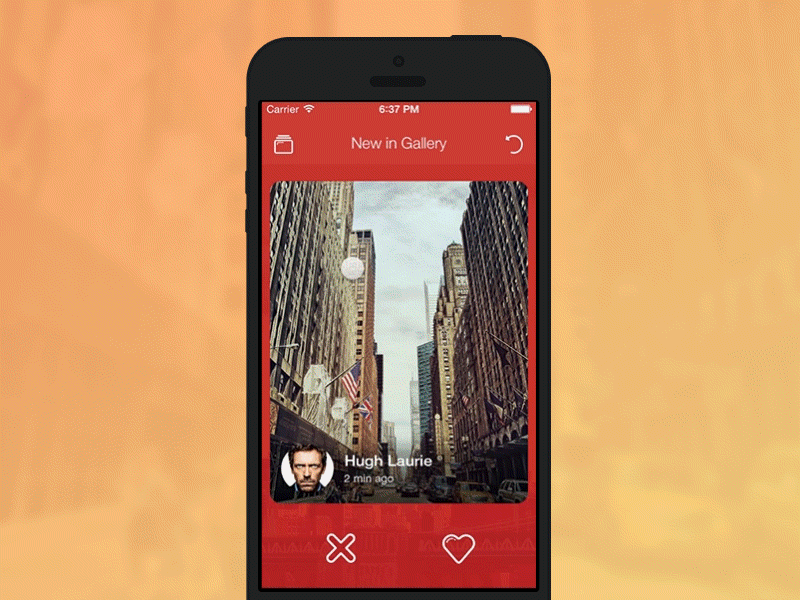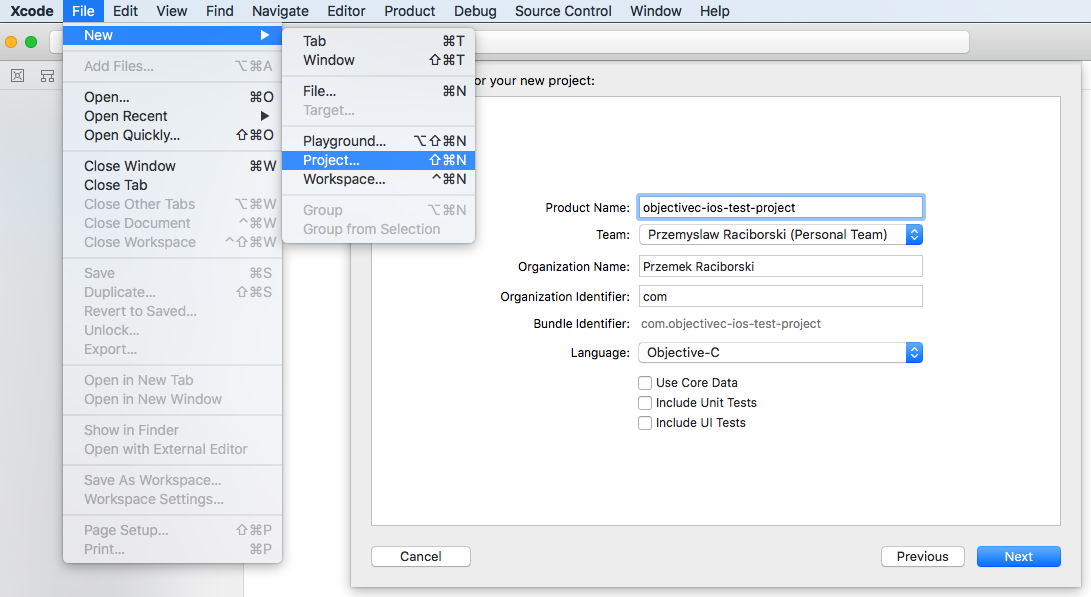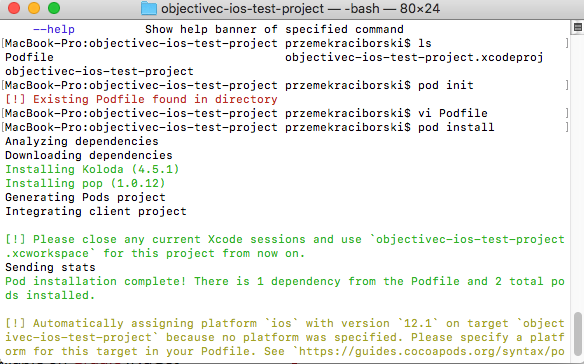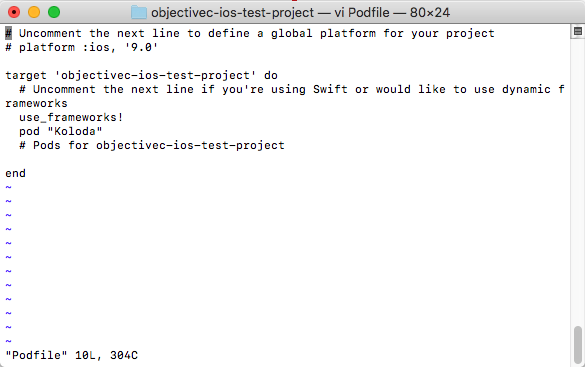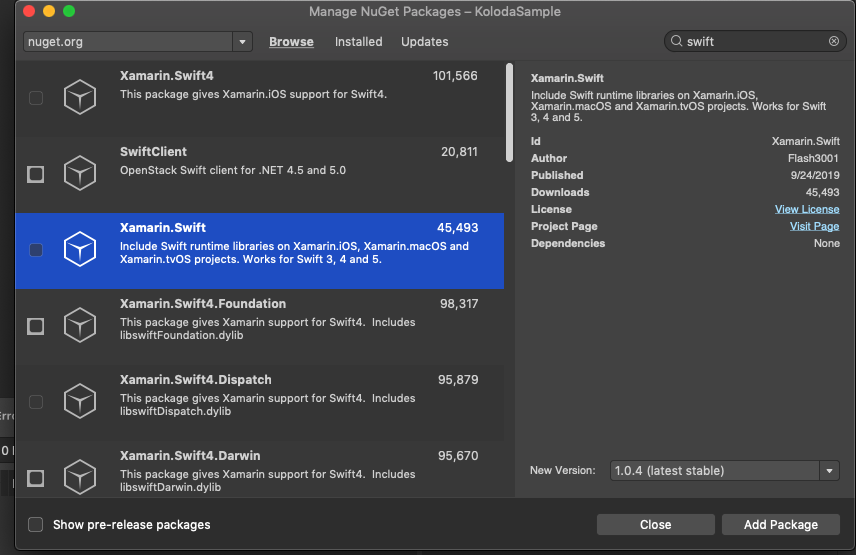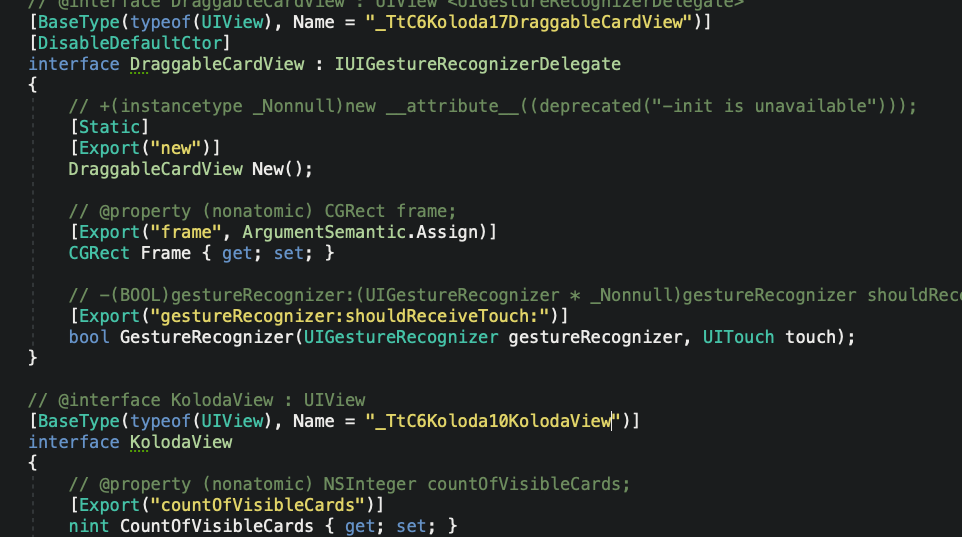using System;
using CoreGraphics;
using Foundation;
using ObjCRuntime;
using UIKit;
namespace Xamarin.Bindings.Koloda
{
// @interface DraggableCardView : UIView <UIGestureRecognizerDelegate>
[BaseType(typeof(UIView))]
[DisableDefaultCtor]
interface DraggableCardView : IUIGestureRecognizerDelegate
{
// +(instancetype _Nonnull)new __attribute__((deprecated("-init is unavailable")));
[Static]
[Export("new")]
DraggableCardView New();
// -(instancetype _Nullable)initWithCoder:(NSCoder * _Nonnull)aDecoder __attribute__((objc_designated_initializer));
[Export("initWithCoder:")]
[DesignatedInitializer]
IntPtr Constructor(NSCoder aDecoder);
// @property (nonatomic) CGRect frame;
[Export("frame", ArgumentSemantic.Assign)]
CGRect Frame { get; set; }
// -(BOOL)gestureRecognizer:(UIGestureRecognizer * _Nonnull)gestureRecognizer shouldReceiveTouch:(UITouch * _Nonnull)touch __attribute__((warn_unused_result));
[Export("gestureRecognizer:shouldReceiveTouch:")]
bool GestureRecognizer(UIGestureRecognizer gestureRecognizer, UITouch touch);
}
// @interface KolodaView : UIView
[BaseType(typeof(UIView))]
interface KolodaView
{
// @property (nonatomic) NSInteger countOfVisibleCards;
[Export("countOfVisibleCards")]
nint CountOfVisibleCards { get; set; }
// @property (nonatomic) BOOL isLoop;
[Export("isLoop")]
bool IsLoop { get; set; }
// @property (readonly, nonatomic) NSInteger currentCardIndex;
[Export("currentCardIndex")]
nint CurrentCardIndex { get; }
// @property (readonly, nonatomic) NSInteger countOfCards;
[Export("countOfCards")]
nint CountOfCards { get; }
// @property (nonatomic, weak) id<KolodaViewDataSource> _Nullable dataSource;
[NullAllowed, Export("dataSource", ArgumentSemantic.Weak)]
KolodaViewDataSource DataSource { get; set; }
[Wrap("WeakDelegate")]
[NullAllowed]
KolodaViewDelegate Delegate { get; set; }
// @property (nonatomic, weak) id<KolodaViewDelegate> _Nullable delegate;
[NullAllowed, Export("delegate", ArgumentSemantic.Weak)]
NSObject WeakDelegate { get; set; }
// @property (readonly, nonatomic) BOOL isAnimating;
[Export("isAnimating")]
bool IsAnimating { get; }
// @property (readonly, nonatomic) BOOL isRunOutOfCards;
[Export("isRunOutOfCards")]
bool IsRunOutOfCards { get; }
// -(void)layoutSubviews;
[Export("layoutSubviews")]
void LayoutSubviews();
// -(CGRect)frameForCardAt:(NSInteger)index __attribute__((warn_unused_result));
[Export("frameForCardAt:")]
CGRect FrameForCardAt(nint index);
// -(void)applyAppearAnimationIfNeeded;
[Export("applyAppearAnimationIfNeeded")]
void ApplyAppearAnimationIfNeeded();
// -(void)revertActionWithDirection:(enum SwipeResultDirection)direction;
[Export("revertActionWithDirection:")]
void RevertActionWithDirection(SwipeResultDirection direction);
// -(void)reloadData;
[Export("reloadData")]
void ReloadData();
// -(void)swipe:(enum SwipeResultDirection)direction force:(BOOL)force;
[Export("swipe:force:")]
void Swipe(SwipeResultDirection direction, bool force);
// -(void)resetCurrentCardIndex;
[Export("resetCurrentCardIndex")]
void ResetCurrentCardIndex();
// -(UIView * _Nullable)viewForCardAt:(NSInteger)index __attribute__((warn_unused_result));
[Export("viewForCardAt:")]
[return: NullAllowed]
UIView ViewForCardAt(nint index);
// -(BOOL)pointInside:(CGPoint)point withEvent:(UIEvent * _Nullable)event __attribute__((warn_unused_result));
[Export("pointInside:withEvent:")]
bool PointInside(CGPoint point, [NullAllowed] UIEvent @event);
// -(instancetype _Nonnull)initWithFrame:(CGRect)frame __attribute__((objc_designated_initializer));
[Export("initWithFrame:")]
[DesignatedInitializer]
IntPtr Constructor(CGRect frame);
// -(instancetype _Nullable)initWithCoder:(NSCoder * _Nonnull)aDecoder __attribute__((objc_designated_initializer));
[Export("initWithCoder:")]
[DesignatedInitializer]
IntPtr Constructor(NSCoder aDecoder);
}
// @protocol KolodaViewDataSource
[Protocol, Model]
interface KolodaViewDataSource
{
// @required -(NSInteger)kolodaNumberOfCards:(KolodaView * _Nonnull)koloda __attribute__((warn_unused_result));
[Abstract]
[Export("kolodaNumberOfCards:")]
nint KolodaNumberOfCards(KolodaView koloda);
// @required -(enum DragSpeed)kolodaSpeedThatCardShouldDrag:(KolodaView * _Nonnull)koloda __attribute__((warn_unused_result));
[Abstract]
[Export("kolodaSpeedThatCardShouldDrag:")]
DragSpeed KolodaSpeedThatCardShouldDrag(KolodaView koloda);
// @required -(UIView * _Nonnull)koloda:(KolodaView * _Nonnull)koloda viewForCardAt:(NSInteger)index __attribute__((warn_unused_result));
[Abstract]
[Export("koloda:viewForCardAt:")]
UIView Koloda(KolodaView koloda, nint index);
// @required -(OverlayView * _Nullable)koloda:(KolodaView * _Nonnull)koloda viewForCardOverlayAt:(NSInteger)index __attribute__((warn_unused_result));
[Abstract]
[Export("koloda:viewForCardOverlayAt:")]
[return: NullAllowed]
OverlayView Koloda(KolodaView koloda, nint index);
}
// @protocol KolodaViewDelegate
[Protocol, Model]
interface KolodaViewDelegate
{
// @required -(NSArray * _Nonnull)koloda:(KolodaView * _Nonnull)koloda allowedDirectionsForIndex:(NSInteger)index __attribute__((warn_unused_result));
[Abstract]
[Export("koloda:allowedDirectionsForIndex:")]
[Verify(StronglyTypedNSArray)]
NSObject[] Koloda(KolodaView koloda, nint index);
// @required -(BOOL)koloda:(KolodaView * _Nonnull)koloda shouldSwipeCardAt:(NSInteger)index in:(enum SwipeResultDirection)direction __attribute__((warn_unused_result));
[Abstract]
[Export("koloda:shouldSwipeCardAt:in:")]
bool Koloda(KolodaView koloda, nint index, SwipeResultDirection direction);
// @required -(void)koloda:(KolodaView * _Nonnull)koloda didSwipeCardAt:(NSInteger)index in:(enum SwipeResultDirection)direction;
[Abstract]
[Export("koloda:didSwipeCardAt:in:")]
void Koloda(KolodaView koloda, nint index, SwipeResultDirection direction);
// @required -(void)kolodaDidRunOutOfCards:(KolodaView * _Nonnull)koloda;
[Abstract]
[Export("kolodaDidRunOutOfCards:")]
void KolodaDidRunOutOfCards(KolodaView koloda);
// @required -(void)koloda:(KolodaView * _Nonnull)koloda didSelectCardAt:(NSInteger)index;
[Abstract]
[Export("koloda:didSelectCardAt:")]
void Koloda(KolodaView koloda, nint index);
// @required -(BOOL)kolodaShouldApplyAppearAnimation:(KolodaView * _Nonnull)koloda __attribute__((warn_unused_result));
[Abstract]
[Export("kolodaShouldApplyAppearAnimation:")]
bool KolodaShouldApplyAppearAnimation(KolodaView koloda);
// @required -(BOOL)kolodaShouldMoveBackgroundCard:(KolodaView * _Nonnull)koloda __attribute__((warn_unused_result));
[Abstract]
[Export("kolodaShouldMoveBackgroundCard:")]
bool KolodaShouldMoveBackgroundCard(KolodaView koloda);
// @required -(BOOL)kolodaShouldTransparentizeNextCard:(KolodaView * _Nonnull)koloda __attribute__((warn_unused_result));
[Abstract]
[Export("kolodaShouldTransparentizeNextCard:")]
bool KolodaShouldTransparentizeNextCard(KolodaView koloda);
// @required -(void)koloda:(KolodaView * _Nonnull)koloda draggedCardWithPercentage:(CGFloat)finishPercentage in:(enum SwipeResultDirection)direction;
[Abstract]
[Export("koloda:draggedCardWithPercentage:in:")]
void Koloda(KolodaView koloda, nfloat finishPercentage, SwipeResultDirection direction);
// @required -(void)kolodaDidResetCard:(KolodaView * _Nonnull)koloda;
[Abstract]
[Export("kolodaDidResetCard:")]
void KolodaDidResetCard(KolodaView koloda);
// @required -(CGFloat)kolodaSwipeThresholdRatioMargin:(KolodaView * _Nonnull)koloda __attribute__((warn_unused_result));
[Abstract]
[Export("kolodaSwipeThresholdRatioMargin:")]
nfloat KolodaSwipeThresholdRatioMargin(KolodaView koloda);
// @required -(void)koloda:(KolodaView * _Nonnull)koloda didShowCardAt:(NSInteger)index;
[Abstract]
[Export("koloda:didShowCardAt:")]
void Koloda(KolodaView koloda, nint index);
// @required -(BOOL)koloda:(KolodaView * _Nonnull)koloda shouldDragCardAt:(NSInteger)index __attribute__((warn_unused_result));
[Abstract]
[Export("koloda:shouldDragCardAt:")]
bool Koloda(KolodaView koloda, nint index);
// @required -(void)kolodaPanBegan:(KolodaView * _Nonnull)koloda card:(DraggableCardView * _Nonnull)card;
[Abstract]
[Export("kolodaPanBegan:card:")]
void KolodaPanBegan(KolodaView koloda, DraggableCardView card);
// @required -(void)kolodaPanFinished:(KolodaView * _Nonnull)koloda card:(DraggableCardView * _Nonnull)card;
[Abstract]
[Export("kolodaPanFinished:card:")]
void KolodaPanFinished(KolodaView koloda, DraggableCardView card);
}
// @interface OverlayView : UIView
[BaseType(typeof(UIView))]
interface OverlayView
{
// -(instancetype _Nonnull)initWithFrame:(CGRect)frame __attribute__((objc_designated_initializer));
[Export("initWithFrame:")]
[DesignatedInitializer]
IntPtr Constructor(CGRect frame);
// -(instancetype _Nullable)initWithCoder:(NSCoder * _Nonnull)aDecoder __attribute__((objc_designated_initializer));
[Export("initWithCoder:")]
[DesignatedInitializer]
IntPtr Constructor(NSCoder aDecoder);
}
}
